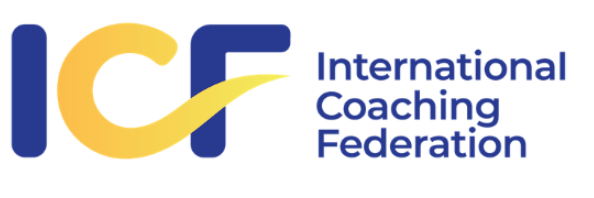with Kathryn Welds PhD, MCC, ESIA ![]()
- Have you encountered “sticky situations” in your coaching practice?
- Have you wondered about your effectiveness in a coaching interaction?
- Did a coaching interaction leave you feeling unsettled?
- Do you feel professionally isolated?
- Do you have no scheduled time to reflect on each coaching interaction?
Reflective Case Conversations: Coaching Super-Vision may address these situations.

WHAT ARE REFLECTIVE CASE CONVERSATIONS:
COACHING SUPER-VISION?
Reflective Case Conversations – Coaching Super-Vision help experienced coaches increase the quality, efficacy, and ethical delivery of coaching services by considering the impact of the coaching work on the coach, client, and coaching system.
This enables coaches to care for themselves during the “emotional labour” of coaching, mitigate carer’s burnout, be more available to clients and to people in the coach’s life.
Supervision is about the being of coaching rather than the doing and is about developing as a coach from the inside out.
Joanne Fourtanier
In supervision we look at what the coach brings into the relationship that … may not be helpful and … understand…where the personal “intrudes” on the professional.

Reflective Case Conversations are a dedicated time to:
- Pinpoint coaching blind spots,
- Take alternate perspectives on the coaching system,
- Learn from “mistakes” and self-doubts,
- Increase awareness of a clients’ impact on others,
- Care for oneself to be fully present for clients,
- Augment coaching interventions by considering ethical and evidence-based best practices.
Reflections on in-the-moment experiences in Reflective Case Conversations enable coaches to consider meta-perspectives, including “resonant re-enactments” of a coaching session in the Super-Vision meeting.
Hawkins’ Seven Eyed Model is a systems approach to coaching Super-Vision and can help assess questions brought to Super-Vision.

Reflective Case Conversations consider a coach’s:
- Coaching interventions,
- Ethical principles,
- Implicit assumptions,
- Unexpressed reactions to the client and the coaching work,
- Self-care to remain “fit-to-practice,”
- Self-awareness,
- Self-regulation in a here-and-now peer dialogue.

Reflective Case Conversations as Continuing Coach Education (CCE)
These meetings are a collaborative learning and reflective space to consider their interventions and reactions to working with clients in context.
Coaching certification organisations define this Continuing Coach Education in several ways.
 The European Mentoring & Coaching Council (EMCC) defines Coaching Supervision as:
The European Mentoring & Coaching Council (EMCC) defines Coaching Supervision as:
“The interaction that occurs when a coach brings their coaching work experiences to a supervisor in order to be supported and to engage in reflective dialogue and collaborative learning for the development and benefit of the coach, their clients, and their organizations.”
International Coaching Federation (ICF) offers: 
“Coaching Supervision focuses on the development of the coach’s capacity through offering a richer and broader opportunity for support and development. Coaching supervision creates a safe environment for the coach to share their successes and failures in becoming masterful in the way they work with their clients.”

Reflective Case Conversations differ from coaching and mentoring.
- Coaching Supervision offers time to reflect on the entire coaching system to support the coach’s growth and improve client outcomes.
- Mentor Coaching focuses on developing the core competencies required for coach credentialing.
- Coaching helps clients achieve their objectives through self-awareness, goal setting, and action planning.

WHAT ARE THE BENEFITS OF REFLECTIVE CASE CONVERSATIONS?
Coaches may increase their coaching effectiveness and sustain their well-being:
- Professional support to develop coaching skills for challenging coaching situations,
- Navigate ethical and professional issues,
- Increase self-awareness and self-regulation,
- Competitive differentiation to ensure coaching quality standards for corporate contracts,
- Continuing Coach Education (CCE): Coaching Supervision is recognized by the International Coaching Federation (ICF) for Core Competency Continuing Coach Education (CCE) hours up to 10 hours for each credential renewal application.

WHO PARTICIPATES IN REFLECTIVE CASE CONVERSATIONS?
Coaches around the world regularly participate Reflective Case Conversations when they wish to maintain highest levels of
-Coaching mastery
-Professional credentialing,
-Ethical practice,
-Coaching outcomes
-Self-regulation.
Coaching Super-Vision is a frequent best practices among coaches in private practice, inside organisations, and who wish to maintain coaching credential with the European Mentoring and Coaching Council (EMCC).
RECOMMENDED FREQUENCY FOR REFLECTIVE CASE CONVERSATIONS

- One (1) hour of Reflective Case Conversation (Coaching Super-Vision) is recommended for every 8–15 hours of coaching, depending on the coach’s level of experience (Bluckert, 2010).
- Minimum of five (5) sessions per year, depending on the number of people seen in coaching each year (Birch, 2010).
Birch, D. (2010) Coaching supervision: quality assurance for executive coaches?, Converse, 7:40–2
Bluckert, P. (2010) Coaching Supervision: An Article.
WHY WORK WITH KATHRYN WELDS, PhD, MCC, ESIA? 
Kathryn is a Master Certified Coach (MCC) with International Coaching Federation (ICF), certified as a Coaching Supervisor with the European Mentoring and Coaching Council (EMCC), and a licensed, board-certified psychologist in California and Oregon, USA.
She earned degrees at Scripps College (B.A., Psychology, Phi Beta Kappa) and Harvard University (M.A., Ph.D., Personality and Developmental Psychology), and completed post-doctoral fellowships at Cornell University Medical College (New York City), California Pacific Medical Center (San Francisco).
Post-graduate Certificates include Executive Leadership Coaching from Columbia University in the City of New York, Advanced Program Management at Stanford University, and Diplomate in Health Psychology from the American Board of Professional Psychology.
Kathryn brings more than 20 years experience as an organizational psychologist, global change consultant, leadership coach, and coaching supervisor, helping people and organizations accomplish ambitious, complex changes.
She held internal leadership roles at Cisco Systems, Hewlett Packard, Kaiser Permanente, Levi Strauss & Co., Inc., Mercer Human Resources Consulting, Oracle Corporation, and others organisations.
Her work as a coach, supervisor, consultant, and psychologist is guided by ethical principles outlined by the EMCC Global Code of Ethics, American Psychological Association Code of Ethics, and International Coaching Federation Code of Ethics.
More information about training and experience are available on LinkedIn

WHAT ARE THE FEES FOR REFLECTIVE CASE CONVERSATIONS?
Kathryn is committed to enabling interested coaches to participate in Reflective Case Conversations.
Fees listed below are “Standard and Customary.”
Alternate fees are available based on individual situations.
One (1) one-hour 1:1 Introduction to Reflective Case Conversations is available for USD $100.
Each one (1) one-hour 1:1 online Reflective Case Conversations is offered for USD $300.
Annual Individual Membership of ten (10) one-hour 1:1 online meetings is available for USD $2500.
Fees are payable in advance by app or cash transfer.
Alternate financial arrangements are available.

ARE REFLECTIVE CASE CONVERSATION HOURS ACCEPTED FOR CONTINUING COACH EDUCATION (CCE) CREDIT?
Yes, International Coaching Federation (ICF) accepts up to 10 hours of Reflective Case Conversation – Coaching Super-Vision as approved Continuing Coach Education for credential renewal.
ARE REFLECTIVE CASE CONVERSATION FEES CONSIDERED A BUSINESS EXPENSE FOR REQUIRED CONTINUING COACH EDUCATION (CCE)?
Yes, Reflective Case Conversations – Coaching Super-Vision fulfills the definition by US tax authorities of a business expense for Continuing Coach Education (CCE) .
It is always advisable to verify local tax regulations and consult local tax authorities.
FOR FURTHER INFORMATION 
You are invited to schedule a complimentary 15-minute videoconference to discuss questions about Reflective Coaching Conversations – Coaching Super-Vision.

